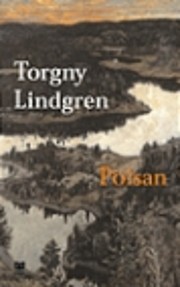

Click on a thumbnail to go to Google Books.
|
Loading... Hash (2002)by Torgny Lindgren
 No current Talk conversations about this book. no reviews | add a review
Belongs to Publisher SeriesKeltainen kirjasto (349) Awards
The main ingredients in the recipes for Swedish hash differ widely. The meats, offal, and grain that go into its preparationan elaborate process of boiling, pickling, steaming, and stewingcan range from the heinous to the dangerous, and the results can be alternately emetic and sublime. The search for the most delicious dish of hashthe ultimate hashforms the backbone of this blackly comic, marvelously innovative new novel from one of Swedens most esteemed and bestselling authors.In a small town where an epidemic of tuberculosis rages, two very different men arrive to a scene of stoically accepted suffering. Robert Maser is a traveling garment salesman whose accent and demeanor betray the fact that he is actually Martin Borman, the fugitive Nazi leader. He engages the local schoolteacher, Lars, on the bizarre quest to find the worlds best hash. As they wander the Swedish countryside, inviting themselves into peasant homes to sample the variety of humble family recipes, it becomes clear that their goal is much more than a culinary marvel, and that what theyve really been seeking is the force of life that must present itself even in the darkest of times.Their adventures are narrated in a faux-naïf style by a 107-year-old newspaper reporter, who was witness to the events as they occurred in 1947, and has waited to confront his own relationship to life and death, happiness and suffering, and the power of art to express lifes ambiguities. No library descriptions found. |
Current DiscussionsNonePopular covers
 Google Books — Loading... Google Books — Loading...GenresMelvil Decimal System (DDC)839.73Literature German & related literatures Other Germanic literatures Swedish literature Swedish fictionLC ClassificationRatingAverage: (3.73) (3.73)
Is this you?Become a LibraryThing Author. |
||||||||||||||||||||||||||||||||||||||||||||||||||||||||||||||||||||||||||||||||||||||||||||||||||||||||||||||||||||||
Mr. Lindgren's book Hash is about a man telling a story. The story he is telling rambles on about two men travelling through northern Sweden looking for the perfect hash. From what I can gleen, hash is a meat based dish made up of the parts of the cow most people run from in terror. These are basically boiled along with various other ingredients, assembled into a loaf served sliced and cold. A batch of hash can keep all year, sometimes longer.
Gross.
What interested me much more than the tale was its teller.
When the novel opens the teller is fifty-four years old and living in a remote section of rural northern Sweden. He has spent a good part of his life writing local interest articles for a nearby newspaper, documenting the unusual lives of the people who live in the area. One day, he receives a letter from the newspaper's editor informing him that the paper has discovered that his stories are all false, that none of the people he describes in them are real, that even the places he mentions are fictitious. The editor forbids him from not only writing further stories for the paper but from writing anything at all.
The teller takes these words to heart and stops writing for the next 53 years. When late in life he discovers that the newspaper editor has died, he again takes up his pen and continues writing from where he left off over five decades ago. Now an old man, he has a lot of ground to cover as much has happened in the lives of his characters since he stopped writing it all down.
The rest of the book alternates between the teller's struggle with the authorities in the nursing home where he now lives and the lives of his characters who search for the perfect hash.
It's an unusual book, not at all like the Swedish crime fiction I'm used to reading.
I liked it.
It left me wondering about the nature of stories and their importance to both audience and writer. What are we to make of the idea that the stories continue forward even when no one is telling them? I think this is at heart a childish notion, but it's a powerful one none-the-less, powerful to this reader anyway. Do we have a responsibility to tell the stories we tell? Do we owe something to the characters in them?
I know one thing for certain. While I look forward to more by Mr. Lindgren, I'm not going to be eating Swedish hash anytime soon. (